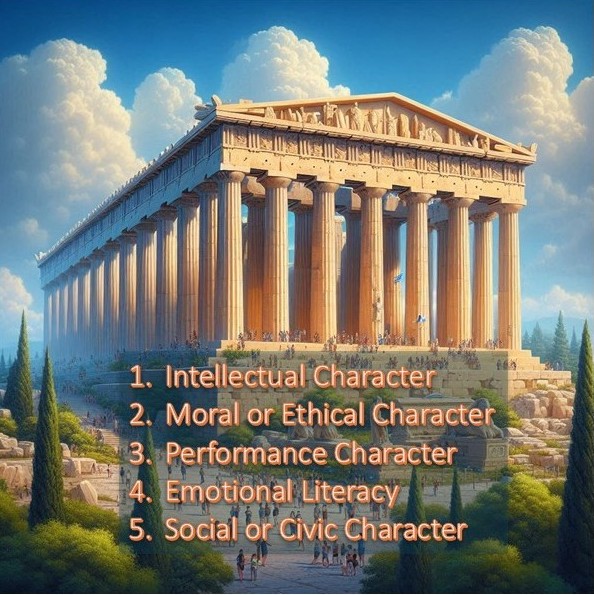A Life Project by Vicente (Tex) Hernandez
The Quiet Strength We Ignore
Our ability to respond to challenges often depends on our upbringing, background, values, and life experiences. The secret to true success lies in growing our physical, mental, and spiritual qualities in a balanced and harmonious way, embracing the changes it entails. We could say that personal growth depends on a desire to change.
CHARACTER
TH
8/19/20254 min read


No one is free from the responsibility of his or her choices. No one has an easy life. It is a fallacy to think that we can avoid every responsibility and leave risk, frustration, or pain behind. Life is complicated.
The rich, the beautiful, the powerful, the smart, the lucky—and even the crooks—often show a type of pleasurable, worry-free lifestyle that we envy. We envy the golden cage, not realizing it’s still a cage. We see them in luxury yachts or cars, wearing designer clothes, spending money extravagantly, and enjoying fabulous vacations; we especially admire their looks in social media. But behind their thin layer of glow, we find sleepless nights, strained relationships, addictions, a fear of losing wealth, or the pressure to maintain an image. This is a weight difficult to carry, often a façade of an unsettling life.
A society that idealizes success, wealth, and status above all else fosters shallow values and relationships. The growing number of mental health issues, and even suicide, shows that there is something deeply wrong in the center of our modern, structured society.
Our ability to respond to challenges often depends on our upbringing, background, values, and life experiences. The secret to true success lies in growing our physical, mental, and spiritual qualities in a balanced and harmonious way, embracing the changes it entails. We could say that personal growth depends on a desire to change.
But why should I change? Often, we resist change either because we don’t truly know ourselves or because we fear the effort it requires. Yet, the most compelling reason to change is deeply personal. Inner restlessness, conflicting desires, guilt, misdirection, and other insecurities stir a longing for a better version of ourselves. Sometimes, we go through life unaware of how poorly we’ve been handling things—at home, at work, or in our relationships. Without realizing it, we may have caused harm, blaming others for issues rooted in our own negligence, unchecked emotions, or personal flaws. We often assume that simply having these flaws entitles us to be accepted as we are, without considering the impact they have on others. How often do we give to character the importance it deserves?
We talk about personal growth and character development, but we also need to see how they are integrated into our personality. Among the varied interpretations and descriptions of what a personality is, we choose to define it as the range of distinctive qualities and traits of an individual, what makes us truly different from each other. Character on the other hand is the energy within that brings us to develop our potential. Personality highlights the traits that make us unique, while character drives us to focus on personal growth. Character is a lifelong foundation, essential from the first steps of childhood to the wisdom of old age.
Character involves a process of transformation which cannot be set aside because what we end up becoming is critical. However, being so important, how can we develop character? Philosophers and educators subscribe to the long tradition of strengthening the values which according to their views are character-builders. Instead, today we would rather talk about pillars. Is this a significant step? Character is not limited to the development of a few values, no matter how important and essential they might be. Character formation is a continuous and dynamic process that involves the development and integration of core values consolidated into pillars.


Right now, as we're wrapping things up, the most down-to-earth take still comes from Carlos Beltramo and his team of the University of Navarre. They broke character development down into five key parts—each one connected, all working together to help us grow.
It is important to emphasize that character is not a passive attitude rooted in expectations about what we will become or what we possess. It is an active disposition that begins, above all, with understanding. The five pillars of character serve as a guide to that understanding.
1. Intellectual character is the habit of reasoning and seeking understanding. Intellectual Character is perhaps the most important pillar. Without intellectual character, the other four pillars lack grounding.
2. Moral or Ethical Character makes us human. It gives us the ability to respond to every situation with constructive principles, encouraging thoughtful and responsible behavior.
3. Performance Character is a permanent disposition to grow through both favorable and adverse circumstances. It reflects a commitment to benefiting oneself and others.
4. Emotional Literacy is critical for recognizing, recovering from, and managing emotional responses in order to achieve emotional balance.
5. Social or Civic Character integrates us into the community of people who make up the environment we live in—and live for.
By nurturing the five pillars of character, we fortify not only the fabric of society but also the essence of who we are as individuals.


Contact & Inquiries
info@echoepolaris.com
© 2025. All rights reserved.


If you have any feedback, comments, or questions, feel free to share your email address.
